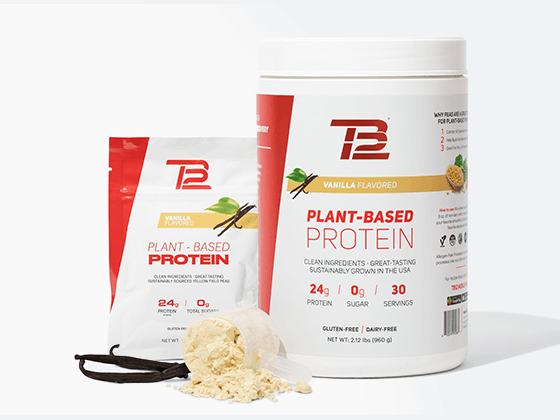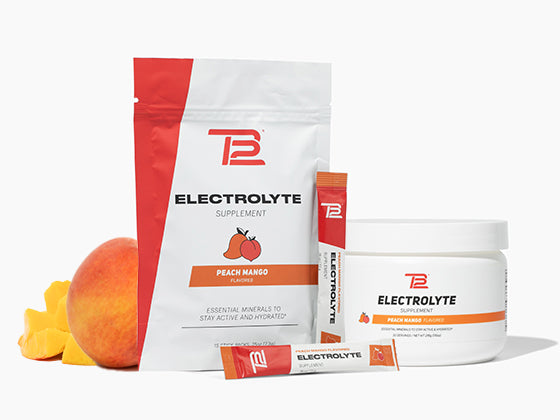Health is personal.
Individuals are exactly that, individuals. Thousands, if not millions, of variables make up a life, making individual health and ways to maintain it unique on a person-to-person basis.
Despite people's individuality, there is often a common theme when it comes to health: weight loss management.
Weight management is not a new concept in the United States because weight gain has been a part of our culture for some time now. According to the National Center for Health Statistics, there has been a steady rise in obesity and severe obesity prevalence since the 60’s, with the most current data suggesting that 40.3% of Americans are obese.
In 2017, a new answer to the weight management question broke onto the scene, glucagon-like peptide-1 receptor agonists, aka GLP-1s. Since then, their use has exploded with a reported 700% rise in use from 2019 to 2023.
And for good reason. The data is there.
A 2022 meta-analysis in Obesity Medicine, looking at 22 trials, found that 50.2% of those using GLP-1s lost greater than 5% of their body weight, and 17.5% lost at least 10%.
But there is always a flip side to the weight loss game, and GLP-1s are no exception.
These types of medications mimic a gut hormone called glucagon-like peptide-1 that regulates blood sugar and appetite, leading to slowed gastric emptying, reduced appetite, stimulating insulin secretion, and inhibiting glucagon secretion (source).
For the less scientifically inclined, GLP-1s lead to decreased consumption and feelings of hunger in general. A 1999 study in GUT demonstrated a dose-dependent reduction in food, caloric, and fluid intake. Participants also exhibited less hunger before and early fullness during the meal.
This presents both the benefit and the problem. Caloric restriction is the basis of weight loss, but caloric restriction can also mean nutrient restriction. A 2025 investigation in Frontiers found that individuals using GLP-1s were significantly deficient in key macro- and micronutrients, which can result in the main side effect that is flooding the media: muscle loss.
Taking Control While Using GLP-1s
GLP-1s are an extremely powerful tool for those looking to lose weight. But some of the side effects can be discouraging.
Some people will claim that GLP-1s aren’t necessary, and some supplements can do the exact same thing as GLP-1 medications.
They are liars.
Others will suggest that the side effects are just part of it, and there is nothing you can do about it.
They are also liars.
Just like every other intervention, GLP-1s are a tool, a means to attaining a goal.
By adding a few of the following tools, you can overcome some of these setbacks and holistically realize your goals.
Prioritize protein: Protein supplies amino acids to help build and maintain muscle mass. Protein consumption is crucial to maintaining muscle mass during times of caloric restriction (source). Supplementing with a protein supplement like TB12’s Plant-Based Protein can help ensure that daily protein needs are being met.
Resistance train: Lifting weights has been shown to be an effective way to help maintain muscle mass while dieting (source). Getting in at least two lifting sessions a week can play a major role in helping support muscle mass while using GLP-1s. When lifting, it is always suggested that the final set be taken within two repetitions of voluntary failure to get the full effect.
Take a multivitamin: As discussed above, GLP-1s hinder nutrient intake. Nutrient intake is paramount for maintaining lean mass and supporting metabolic functions. Multivitamins are a great way to pack in crucial micronutrients, even when calorie intake is restricted.
Check in mentally: Mental health is a cornerstone of TB12 principles. At least one 2025 review suggests that GLP-1 use has the potential to lead to food aversion. Constantly check in with your feelings about food. If you feel like something is getting out of hand, reach out to resources in your area. Also, tacking on non-weight-related goals such as energy, blood sugar, or activity level and performance can help shift the focus from the scale to a more holistic outlook on life.
Hydrate frequently: GLP-1s have been shown to decrease fluid intake. Hydration is another foundational principle of TB12. Maintaining healthy fluid intake is crucial to maintaining health and performance. Adding TB12 Electrolytes can help ensure adequate fluid balance.
Eat small, frequent meals: Large meals can overload your stomach. GLP-1s already create feelings of fullness and less hunger. By eating smaller meals throughout the day, you can avoid some of these overbearing feelings and maintain decent nutrient intake.
Your goals as exactly that, yours. So is the way you choose to realize them.
But any goal worth achieving is going to be hard.
No matter how you decide to achieve your goal, we want to help make it a little easier with nutritional and lifestyle support every step of the way.





